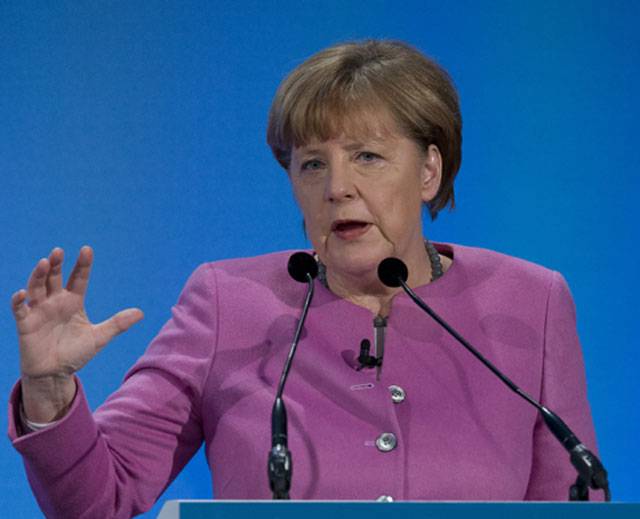VIENNA - Germany's embattled Chancellor Angela Merkel said Saturday that Europe needs to secure more deals with third countries on sending back migrants who do not qualify for asylum.
"We want to stop illegal immigration while living up to our humanitarian responsibilities," Merkel said after talks in Vienna with counterparts along the Balkan migrant route.
"It is necessary to get agreements with third countries, especially in Africa but also Pakistan and Afghanistan... so that it becomes clear that those with no right to stay in Europe can go back to their home countries," she told reporters.
In March the EU and Turkey struck an accord under which Ankara promised to halt a mass influx of migrants into Greece in return for billions in aid and other sweeteners.
The influx has far from stopped, however, with many migrants attempting treacherous sea crossings from Libya or Egypt to Italy instead.
More than 300,000 migrants have crossed the Mediterranean this year, the UN said on Tuesday, down from 520,000 from the first nine months of 2015. But deaths this year - 3,500 so far - could exceed last year's total.
In addition more than 60,000 migrants remain stranded in Greece. Merkel said that an RU relocation scheme to share out some of these people among EU states has been "too slow".
Merkel was in Vienna for talks with leaders of countries along the Balkan migrant route.
They included Hungary's premier Victor Orban, scornful of Merkel's "open-door" stance, Alexis Tsipras of Greece, home to 60,000 stranded migrants, and Boyko Borisov of newly under-pressure Bulgaria.
Austrian Chancellor Christian Kern said that the aim of the talks, also attended by top EU officials, was to "accelerate" momentum towards ending Europe's worst migration crisis since 1945.
He said that this included "massively improving" the securing of the EU's outer borders, more efforts to look after refugees in the region they come from and, longer term, a "Marshall Plan" for Africa.
"At the moment there is a range of individual measures but no common European line," Kern told the Kleine Zeitung daily.
Populist parties across Europe have stoked concerns about the new arrivals to boost support, not least Alternative for Germany (AfD). On Monday Merkel said the influx could have been better handled.
In March, under pressure from Austria, Balkan countries closed their borders, and the flow has since slowed dramatically, although 100-150 still make it to Austria every day, Vienna says.
The same month the EU struck a deal with Turkey - home to more than three million refugees - under which Ankara halted the influx in return for billions in aid and other sweeteners. The pact may yet collapse, however, in the wake of the July 15 coup attempt in Turkey. Kern said that the EU also needed to do similar deals with countries like Egypt and Jordan.
Greece remains under severe strain, as illustrated by a huge fire at a refugee camp on the island of Lesbos on Monday.
An EU scheme to relocate migrants stuck in Greece and fellow hotspot Italy is massively behind expectations, while extra administrative assistance promised by the EU has been insufficient.
Bulgaria, the EU's poorest country, is home to around 10,000 stranded migrants although Brussels has promised Sofia extra help.
A new EU border force will start operations on Bulgaria's border with Turkey on October 6.
Not all of those attending in Vienna necessarily see eye-to-eye on how to deal with the crisis. Orban, in particular, has refused to take in a single migrant under the EU scheme.
The Hungarian prime minister has organised a referendum on October 2, seeking a vote against the mandatory division of migrants among EU members.
On Thursday he called for all illegal migrants to be deported from the European Union to "large refugee camps" on an island or in North Africa where their asylum claims could be processed.
EU President Donald Tusk, arriving in Vienna, said that it was necessary "to confirm, politically and in practice, that the western Balkan route of irregular migration is closed for good."
But the difficulties of making it through to the Balkans has prompted increasing numbers to attempt treacherous sea crossings from Libya or Egypt to Italy instead.






